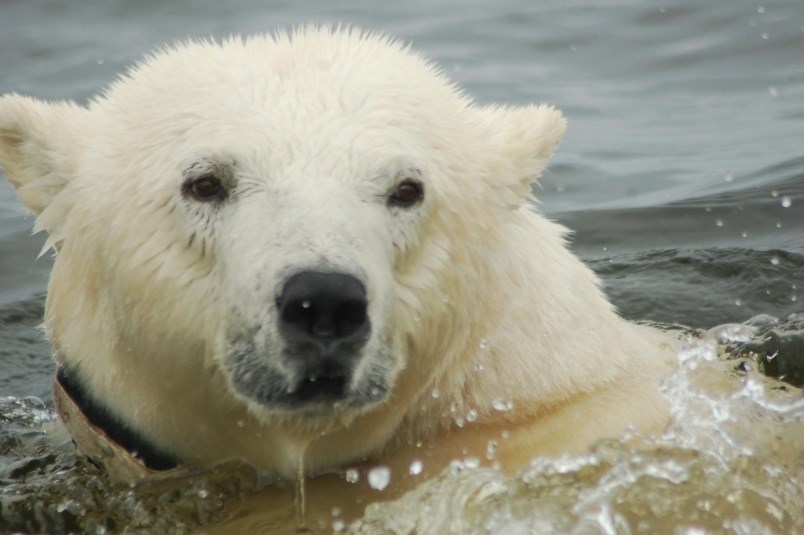The expansion of Churchill’s polar bear tourism industry needs to be undertaken with caution, researchers warn, as Manitoba issued new tourism permits for a protected area east of the town for the first time in decades.
The Churchill Wildlife Management Area was established in 1978, and was created with the intention of protecting polar bear denning areas, as well as geese and caribou.
"The concern is that the dynamics in this population are changing. There are fewer bears in the population over time. It used to be 1,200 bears back in the 1980s. And now we're down around 800. It's a population that is being challenged by changing climate," said longtime researcher Andrew Derocher.
In order to access this area, tourism operators need to have their heavy-duty vehicles permitted by the province; but there was a cap of 18 permits. Twelve are held by Frontiers North Adventures, six by Great White North Tours.
Other outfits have operated in the Churchill region, but the protected area was off-limits.
Without any announcement or community consultation, the province has changed tact and issued new permits to a third operator, Lazy Bear Expeditions.
The owner of Lazy Bear Expeditions and Lodge is Wally Daudrich, a former federal Conservative candidate who raised eyebrows in the 2011 election, after making inflammatory remarks about U.S. president Barack Obama and local MP Niki Ashton. Daudrich did not respond to a Winnipeg Free Press request for an interview.
Great White North Tours began contesting the possible issuance of new permits in the Churchill Wildlife Management Area in court in March 2020, but the judicial review has been adjourned with no future hearing date set.
A spokesperson for the Department of Agriculture, which handles the issue of polar bear conservation, said they would not comment on the specific permits being issued, but that the provincial government is committed to a sustainable eco-tourism industry in Churchill.
Agriculture Minister Blaine Pedersen was not made available for an interview.
The lack of transparency from the government has caused confusion about what is happening with permits and what the province’s future plans are for the protected area, and polar bear conservation itself.
"What I heard was that they were going to offer a few licences, and then there was some pushback from some of the operators. And then (the province) just said: ‘Well, then we'll give out even more permits.’ In a nutshell. That's what I heard," Derocher said.
His concern about the impact on bears pushed him to write a letter of concern to multiple government officials, as well as community stakeholders.
"Increasing the number of tundra vehicles is a change to the existing situation and for a population of polar bears in decline, and under increasing pressure from climate change, a precautionary approach is advisable," the letter reads.
Derocher points out as a signatory to the 1973 Agreement on the Conservation of Polar Bears, Canadian jurisdictions are mandated to pursue sound conservation practices.
In 2015, an independent review was conducted of the Churchill Wildlife Management Area to try and determine the tourism carrying capacity of the protected zone. Researchers came back with three key recommendations for the province.
Among them: further research to address knowledge gaps in the understanding of how tourism operators use the area, and how that use impacts bears. Another was to try and resolve conflicts between different operators in the area, which has not occurred.
Many Free Press interview requests were declined Thursday, as the potential for weighing in on the contentious subject kept people from voicing their thoughts.
The third recommendation was to adjust policies to prepare the Northern Manitoba town and its tourism industry for a warmer world.
"Churchill has undergone and will continue to undergo unavoidable changes in the environment over the coming decades, largely as a result of climate change," the report reads.




